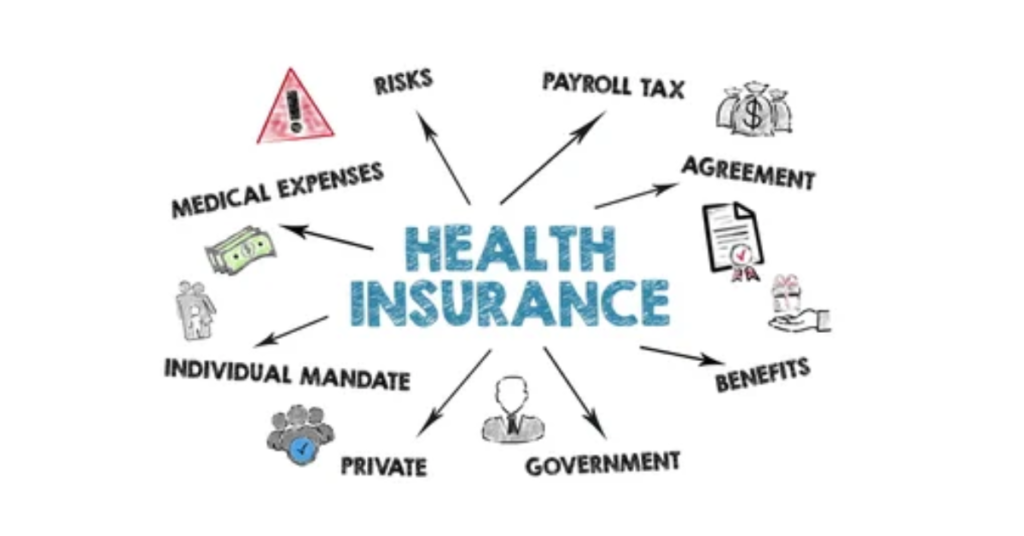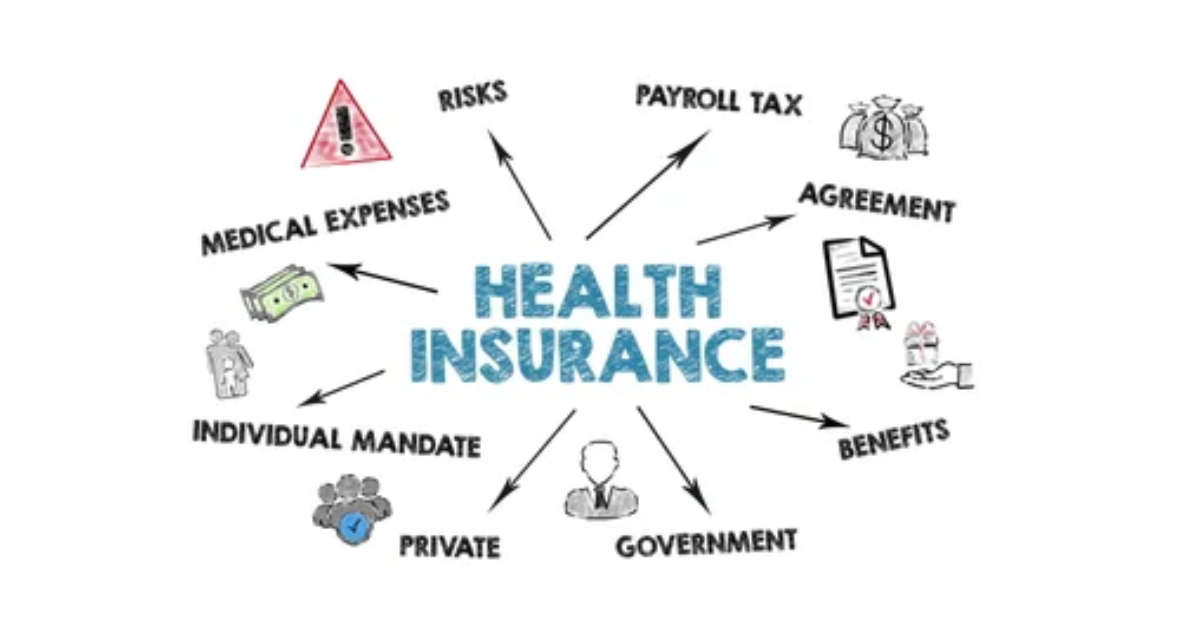As graduate students embark on their advanced academic journey, maintaining their health and well-being becomes crucial. Long hours spent researching, teaching, and studying can take a toll on both physical and mental health, making it essential for students to have reliable health insurance coverage. Graduate student health insurance provides financial protection and access to healthcare services, ensuring that students can prioritize their studies while staying healthy.

Why Graduate Students Need Health Insurance
Graduate school can be a demanding and stressful period in a student’s life. With a packed schedule of coursework, research, teaching, and possibly working part-time jobs, many graduate students may neglect their health. However, medical issues can arise unexpectedly, and the financial burden of healthcare without insurance can be overwhelming. Health insurance provides a safety net, enabling students to receive necessary medical care without the fear of exorbitant out-of-pocket expenses.
In addition to covering emergency services, health insurance also offers preventive care, mental health support, and routine check-ups. This helps students address health concerns early on and ensures they maintain a level of wellness that supports their academic and personal success. Proper health coverage is a vital tool in managing both long-term health and short-term medical issues that might otherwise disrupt their academic pursuits.
Types of Health Insurance Plans for Graduate Students
Graduate students have access to a variety of health insurance plans depending on their location, financial situation, and university offerings. These plans differ in cost, coverage, and provider networks. Understanding the options can help students make informed decisions about the best type of insurance for their individual needs.
1. University-Sponsored Health Insurance Plans
Many universities offer health insurance plans specifically designed for their student body, including graduate students. These plans are often comprehensive, providing coverage for doctor visits, emergency care, mental health services, and even some preventive care. One of the advantages of university-sponsored health plans is that they are generally affordable, as universities often negotiate group rates and may even subsidize part of the cost for graduate students.
Another benefit of university-sponsored plans is their convenience. These plans typically include access to on-campus health centers, which offer basic medical services like immunizations, lab tests, and prescriptions at reduced or no cost. These centers are particularly helpful for busy graduate students who need quick access to healthcare without leaving campus.
2. Private Health Insurance
For students who want more flexibility or a broader range of coverage, private health insurance may be an option. Private insurance plans are available through the health insurance marketplace or directly from insurers. These plans tend to have larger provider networks, which can be an advantage for students who prefer seeing a specific doctor or who need specialized care.
However, private health insurance is often more expensive than university-sponsored plans, especially for students who do not qualify for subsidies. While private plans may offer additional benefits, such as access to more healthcare providers and facilities, students need to weigh the higher premiums and out-of-pocket costs when considering this option.
3. Parental Health Insurance (Under Age 26)
Under the Affordable Care Act (ACA), students under the age of 26 have the option to remain on their parent’s health insurance plan. For many students, this can be a cost-effective and convenient option, particularly if their parents have a robust plan that includes coverage in the student’s location. This option allows students to continue receiving healthcare through their parent’s plan while they are in graduate school, saving money on premiums and other costs.
It is important to verify that the parental plan covers healthcare services in the state or city where the student is studying. If the plan has a limited network in that area, it may result in higher out-of-pocket costs for out-of-network care. Additionally, this option may not be available to students over the age of 26, making it a temporary solution.
4. Medicaid
For low-income graduate students, Medicaid may provide a viable option for health insurance. Medicaid is a government program that offers free or low-cost healthcare coverage to eligible individuals based on their income level. In states that have expanded Medicaid under the ACA, more graduate students may qualify for coverage, making it an attractive option for those with limited financial resources.
Medicaid covers a wide range of medical services, including doctor visits, hospital stays, prescription medications, and preventive care. While the eligibility requirements and application processes vary by state, students should explore whether they qualify for Medicaid as a cost-effective healthcare solution.
What to Consider When Choosing Health Insurance
Choosing the right health insurance plan can be overwhelming, especially for graduate students balancing financial constraints with their healthcare needs. Several factors should be taken into account when comparing health insurance options:
1. Coverage for Essential Services
When evaluating a health insurance plan, it’s essential to ensure that it covers basic healthcare services such as doctor visits, hospitalization, prescription medications, and mental health care. Graduate students should also check whether the plan includes preventive services, like vaccines and screenings, which can help maintain good health throughout the academic year.
For students with pre-existing conditions or specific healthcare needs, verifying that the insurance covers necessary treatments or medications is crucial. Some plans may have limitations on coverage for specialist visits or chronic care, so understanding the scope of the plan’s benefits is important.
2. Affordability: Premiums, Deductibles, and Out-of-Pocket Costs
Health insurance costs include more than just the monthly premium. Graduate students should consider the deductible (the amount they must pay before insurance starts covering costs), copayments, and coinsurance for services. Plans with lower premiums may have higher deductibles or out-of-pocket costs, meaning that students will need to pay more before receiving full benefits.
Balancing the cost of premiums with the anticipated healthcare needs is key to finding an affordable plan. It may be worth paying a slightly higher premium for better coverage, especially if the student anticipates needing medical services regularly.
3. Provider Network
Graduate students should verify that their preferred healthcare providers, such as doctors, specialists, or hospitals, are included in the insurance plan’s network. Out-of-network care can be significantly more expensive, leading to higher costs for medical services. University-sponsored health plans often include access to on-campus healthcare services, but for more specialized care, students may need to seek off-campus providers.
It is also important to consider whether the plan covers healthcare services in the area where the student is studying. Some plans may have limited networks, which can make it difficult to find in-network providers, especially for students attending school in a different state.
4. Mental Health and Counseling Services
Mental health support is critical for graduate students, who may experience stress, anxiety, or depression during their studies. Many health insurance plans now include coverage for mental health services, such as counseling, therapy, or psychiatric care. Graduate students should ensure that their health insurance plan offers adequate mental health coverage and check whether on-campus counseling services are included in the plan.
For students who anticipate needing regular mental health support, it’s important to verify that therapy sessions and other services are covered under the plan and whether there are limits on the number of visits or types of treatments.
Benefits of Health Insurance for Graduate Students
Having health insurance as a graduate student provides several significant benefits that go beyond just covering medical expenses. Here are some of the key advantages:
- Access to Preventive Care: Health insurance typically covers preventive services like annual check-ups, vaccines, and screenings, helping students stay healthy and catch any potential issues early.
- Protection from Medical Emergencies: In the event of an accident or sudden illness, health insurance protects students from the financial burden of high medical bills, ensuring they can get the care they need without risking financial hardship.
- Mental Health Support: Health insurance provides access to mental health services, which is particularly important for graduate students dealing with academic stress, anxiety, or depression.
- Convenience of On-Campus Healthcare: For students enrolled in university-sponsored plans, access to on-campus health services can make it easier to get basic healthcare quickly and at little or no cost.
Applying for Graduate Student Health Insurance
Applying for health insurance typically coincides with the start of the academic year. Graduate students can usually enroll in university-sponsored health insurance during open enrollment periods, which often take place before the semester begins. Some universities allow students to apply for health insurance throughout the year if they experience a qualifying life event, such as losing other coverage or getting married.
For students exploring private insurance or Medicaid, enrollment may be available through the health insurance marketplace or state programs. It’s important to check deadlines for open enrollment or qualifying events to avoid gaps in coverage.
Conclusion
Health insurance is an essential resource for graduate students, providing protection against unexpected healthcare costs and ensuring access to necessary medical services. With various options available, from university-sponsored plans to Medicaid and private insurance, students can find a plan that fits their needs and budget. By carefully evaluating their healthcare requirements, coverage options, and costs, graduate students can make informed decisions that support their health and academic success.
